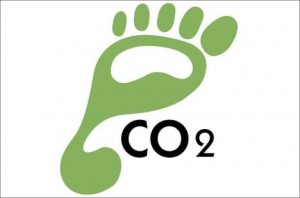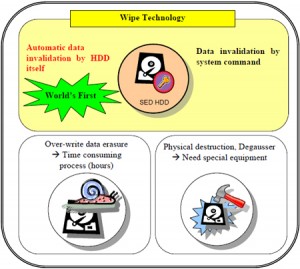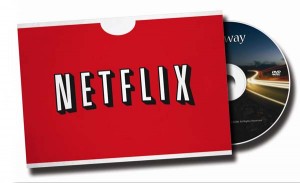The team of Infographiclabs created an infographic of the shortest Hollywood marriages for our sister site Celebrific.
MobileASL – Sign Language On Mobile Phones
 What do you use your mobile phone for? If this question were asked 10 to 15 years ago, the most common answer would probably be “for voice calls.” Today, text messaging and browsing the web just might be the “winning answers.”
What do you use your mobile phone for? If this question were asked 10 to 15 years ago, the most common answer would probably be “for voice calls.” Today, text messaging and browsing the web just might be the “winning answers.”
I bet, though, that communicating using sign language over the phone is not going to be in anyone’s list of anyone’s answers. If a group of engineers from the University of Washington is successful, millions of deaf people around the world will be able to use their mobile phones to make calls; and instead of using voice to communicate, they can use American Sign Language!
The team has dubbed themselves the MobileASL, and they have been working on a technology that compresses video signals. The technology focuses on the face and the hands of the user, optimizing the use of the bandwidth. In addition to that, the engineers are also looking at conserving battery life by detecting whether or not the user is signing. At “idle” moments, the power use can be lowered to extend the battery life.
At this point, the brains behind the technology still want to know more about how it will perform in real life situations. They have conducted studies with “real” users, and the response has been positive so far. The edge that MobileASL has is the fact that they are aiming to make the technology available over a broad range of devices. No iPhone-only application from these guys – if they have their way, practically anyone will be able to make use of their creation.
Is Your Geotag Function Disabled?
 Tech-savvy individuals would know all about geotags. Initially, the whole idea can make you overly excited. When you hear about what happened to Adam Savage (of Mythbusters fame), though, you might think twice about enabling thing function.
Tech-savvy individuals would know all about geotags. Initially, the whole idea can make you overly excited. When you hear about what happened to Adam Savage (of Mythbusters fame), though, you might think twice about enabling thing function.
Basically, geotagging allows data to be embedded in different media such as photos and videos. For example, when you use your iPhone to take a picture, the longitude and latitude can be included in the file. When uploaded to a web site, anyone who views the file can extract that data.
That’s what happened to Adam Savage, who posted a photo of his ride to work on Twitter. As a caption, he wrote “Now it’s off to work in my beast. Wait…How’d that DOG get in there?”
Nothing’s wrong with that, right? Think again. The photo included details on the exact location of his home (where it was taken). His caption also revealed the information that the house might be empty in the next several hours. You see where I am going with this?
You’d think that someone like Adam Savage would have known better than to do something like this, but he salvaged the situation quite well by saying that he was not at all concerned about the issue as he is not famous enough to be stalked. Now I am not so sure about that…Oh, and yeah, he moved to another house.
Anyhow, even if you are not a public figure like Adam Savage, you might want to disable that geotag function. After all, you know how ingenious unscrupulous individuals can get.
Photo from The New York Times
The Internet’s Carbon Footprint Will Make You Think Twice
 If you are concerned for the environment, then this post just might make you think twice about spending so much time on your computer and on the Internet. According to The Guardian, the carbon footprint of the Internet is astounding: 300 million tones of carbon dioxide per year. Just to make that more understandable:
If you are concerned for the environment, then this post just might make you think twice about spending so much time on your computer and on the Internet. According to The Guardian, the carbon footprint of the Internet is astounding: 300 million tones of carbon dioxide per year. Just to make that more understandable:
• Almost as much as all the coal, gas, and oil burned in Turkey or Poland
• More than half of the fossil fuels that the UK burns
• Imagine every person in the UK flying to the US and back – twice.
Astounding is the word, right? It makes you think – all the effort you’ve been putting into making the world a better place might be going down the drain. All because you spend so much time on the Internet. (Yeah, I am talking about myself here.)
Then again, the Internet does help cut back on energy consumption in so many ways. The same article outlines a couple of points:
• Smart grids are possible because of the Internet, and we all know they save energy.
• Tools such as video conferencing software help cut back on flights (read: higher carbon footprint).
More interesting are the ideas that Leo Hickman posted about a year ago. In his article, he posed the suggestion of cutting back on Internet usage:
Might we now have to ration our use of the internet to ensure its very survival? If so, what would be considering a fair share of the internet? Thirty minutes of browsing a day per person? Fifty megs of download a day? Just as we are being asked to “do our bit” for the environment by flying less, using public transport more, eating less meat and the like, might we now be asked to download fewer bulging multimedia files?
Call me biased and totally subjective, but just how accurate are these figures anyway? Isn’t it possible that the situation isn’t that bad? But yes, this post is making me think twice.
Photo credit: Green Office Projects
Toshiba Wipe Adds More Security for Sensitive Data
 Paranoid about the sensitive data you have in your hard drive? Toshiba just might have the answer for you with their new technology called Wipe. This technology involves self-encrypted hard drives. Basically, the security lies in the fact that sensitive data can be wiped out from the drive when the system is turned off or when the hard drive is taken out of the system. In case someone tries to steal your HDD, you are safe!
Paranoid about the sensitive data you have in your hard drive? Toshiba just might have the answer for you with their new technology called Wipe. This technology involves self-encrypted hard drives. Basically, the security lies in the fact that sensitive data can be wiped out from the drive when the system is turned off or when the hard drive is taken out of the system. In case someone tries to steal your HDD, you are safe!
Here’s an excerpt from the press release made by Toshiba:
…Wipe for Toshiba Self-Encrypting Drive (SED) models, a technology that allows special security capabilities, such as the world’s first ability for sensitive user data to be securely erased when a system is powered-down or when a SED HDD is removed from the system. The feature can also be used to securely erase user data prior to returning a leased system, system disposal or re-purposing. Wipe was created as an enhancement to Toshiba’s Self-Encrypting Drive (SED) hard disk drives.
Toshiba announced its latest 2.5″ 7200rpm SED HDD model in July 2010, to address the increasing need for IT departments to comply with privacy laws and regulations governing data security. Designed to the Trusted Computing Group “Opal” Specification, Toshiba’s SED models provide advanced access security and on-board encryption for client systems such as notebook computers.
This technology can be applied to hard drives for laptops and other mobile devices. Businesses that use electronic equipment such as printers and photocopiers with hard drives can also benefit from this new technology.
It is easy to see how individuals and entities who have particularly sensitive information will find great use for Wipe. The question is this: just how much will this set you back? So far, it doesn’t seem like exact figures have been released. We’ll find out soon enough, I am sure.
Netflix to Add More Films
 Movie enthusiasts will be happy to hear that they will be able to access more movies from Netflix soon. It’s not that the service has a shortage of choices. However, this move is necessary in order to remain at the head of the game. Internet streaming is definitely becoming the medium of choice for the average consumer, and Netflix is simply providing for the need.
Movie enthusiasts will be happy to hear that they will be able to access more movies from Netflix soon. It’s not that the service has a shortage of choices. However, this move is necessary in order to remain at the head of the game. Internet streaming is definitely becoming the medium of choice for the average consumer, and Netflix is simply providing for the need.
How is Netflix going to manage this? They’ve struck a deal with Epix, a company that holds the rights to films from Lions Gate, MGM, and Paramount. This pretty deal is going to cost Netflix a hefty $900 million over the next five years, money that is sure to come rushing back to them.
What’s going to happen is that hit movies like “Iron Man” and “The Curious Case of Benjamin Button” are soon going to be available for streaming. Netflix is offering a package that combines streaming access and DVD deliveries for only $8.99. If there are going to be a whole lot more big titles coming Netflix’s way, then customers just might be flocking to avail of their service more and more.
They’re not stopping here, though. It seems that they also have HBO (the main competitor of Epix) in sight. When this subject was brought up, Ted Sarandos (Netflix’s chief content officer) replied, “Every deal expires, and every deal has to be renewed.” Indeed. And, if they get the rights to HBO’s content, there really might be no stopping the company. As long as they’re offering reasonable packages, I don’t really see any problem.
